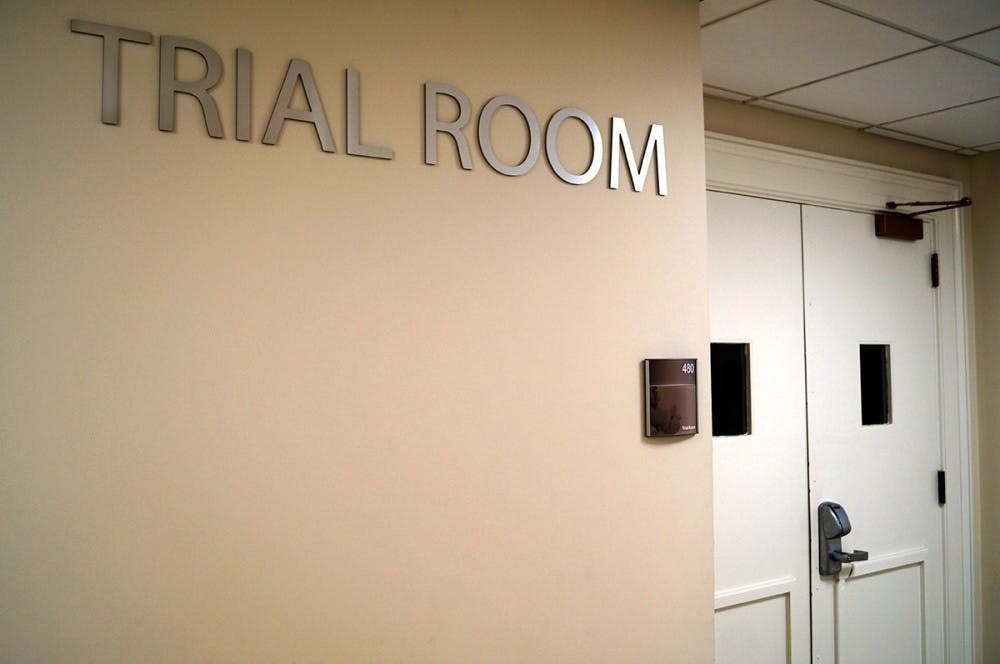The Honor Committee met for its final meeting of the semester Sunday night. With only 14 members in attendance, the committee did not meet quorum, which requires 19 present members of 28 total. As a result, the committee only reviewed half of its agenda and did not vote on proposed bylaw changes.
The committee began the meeting with updates from Gabrielle Bray, vice-chair for hearings and third-year College student, who explained the Contributory Health Impairment qualification. The CHI allows students who committed an Honor offense in part due to contribution from a medical reason to acknowledge this before moving through with the case process.
Bray said students have had difficulty finding available appointments with health practitioners, which is crucial to the Honor system’s full functioning, as the first step in filing a CHI is to obtain an initial assessment from a physician. The evaluation can be completed with the University Counseling and Psychological Services if the student is already under the care of a CAPS provider, but CAPS will not perform an initial assessment solely for the purpose of an Honor violation. If a CAPS assessment is unavailable, the student must find a health provider outside of the University.
“That situation does not seem likely to change anytime in the near future, which is incredibly frustrating if you have a case trying to go to a CHI,” Bray said.
Following Bray’s updates, Andy Chambers, chair of the Honor Committee and fourth-year College student, offered insight into the committee’s case processing load for this semester. Chambers said the committee heard 11 cases this semester, which fell short of expectations of caseloads of more than 30 cases per semester.
Rep. AJ Cuddeback, third-year Engineering student, then presented on the production of a faculty survey, which will allow the Honor Committee to collect empirical evidence to back up conjectures regarding instances in which faculty members are or are not likely to report an Honor violation.
“Since we're at this lag on committee, we want to use it to actually get an opinion so that when we're kind of conjecturing about [whether] professors would or would not report under certain systems, that's the type of thing that we could actually have data to back up,” Cuddeback said.
Cuddeback also plans to release a similar survey to the student body, gauging their response to the Honor system.
Benos then recapitulated the broad support he has received for his constitutional reform and highlighted a desire to talk about the proposed referendum with students in a variety of ways, a point with which Chambers agreed.
The bylaw proposal agreed upon by the committee during the meeting on Oct. 31, if passed, would have allowed the Committee to hold a vote on any constitutional proposal over Zoom. The proposal that propelled such a bylaws change is one to reduce the sanction of expulsion to a two-semester leave of absence and extend the period an accused student can file an informed retraction until the start of their trial. The proposal has been heavily debated in the last several months and was proposed by third-year Law student Rep. Christopher Benos. The proposal has not yet received enough votes to be put on the ballot this spring.
Chambers then reminded members that Honor’s Popular Assembly — which allows students, faculty and staff to provide input into the Honor system — will be held sometime in February.
Chambers also provided an update on the Faculty Senate, which has voiced frustrations to him regarding certain aspects of the Honor system and adjudication of trials — most notably, the length of the trials. Faculty are also concerned about jury nullification, whereby a panel of jurists find a defendant not guilty regardless of evidence presented.
“It looks like the rest of this needs a quorum … we got through about half the agenda, so that’s good,” Chambers said.
With that, the meeting was adjourned.







